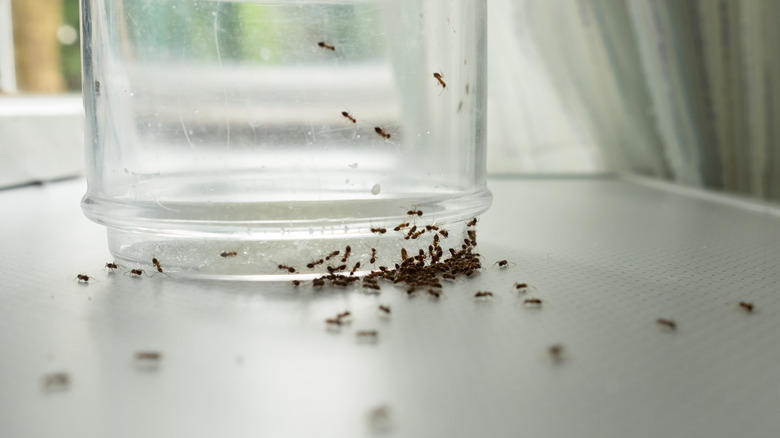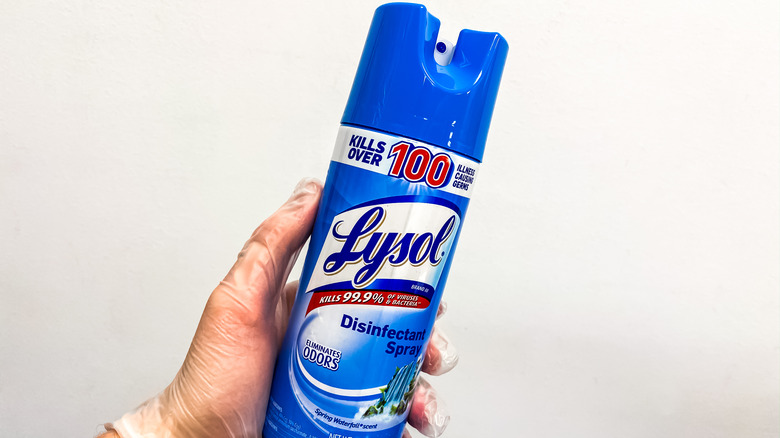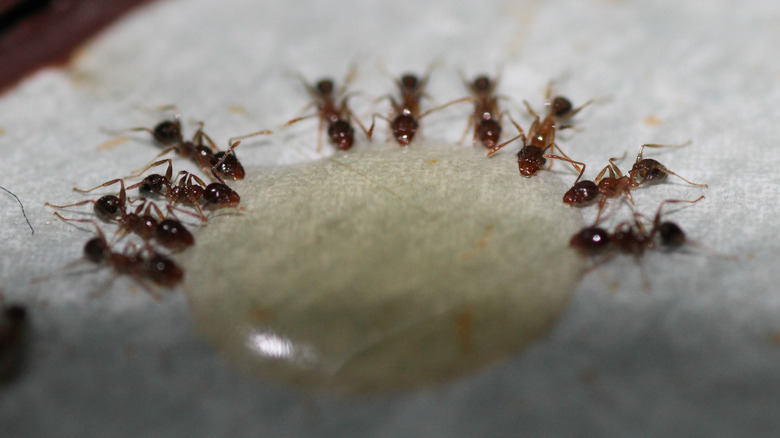The Popular Cleaner That Can Help Solve Your Ant Problem In A Pinch
Ants are one of the most common pests found in homes. No matter where you live, they can easily squirm their way into your living quarters. Though they are very small and usually don't bite, they can be an absolute nuisance. There are several ways to get rid of ants, both chemically based and natural, and one easy way is to simply spray some Lysol.
Lysol is a disinfectant that most of us keep in our kitchens and bathrooms to keep germs at bay. It's made from compounds such as alcohols, phenols, and others. Ethanol is the alcohol that is responsible for its pungent odor. These compounds effectively eliminate bacteria and germs found on many household surfaces.
This popular cleaner can also successfully obliterate them on contact. This makes it very handy when you are taken by surprise by an ant or two in your home. Though some people don't enjoy the chemicals found in Lysol, a few squirts of it sprayed directly on ants can instantly kill them.
How Lysol kills ants
Though ant repellents and baits contain toxic chemicals to eliminate ants, plain old Lysol carries its own arsenal. It contains a number of ingredients that are toxic to ants. Ethanol does a whole lot more than give off a strong odor. It can dehydrate ants by stripping moisture from their body and, in effect, kill them.
Lysol also suffocates ants. The way ants breathe is through the spiracles, which are holes contained throughout their body. When sprayed with the toxic Lysol chemicals, they can't breathe and asphyxiate.
To use Lysol to kill ants, you need to spray it directly on the insects. You can also spray it around areas where ants are active, such as near food sources or entry points. However, Lysol is only a temporary solution to an ant problem. You will need to continue to spray the ants every few days to keep them away.
Find a long-term solution to getting rid of ants
Lysol can help at the moment when you find ants, but it won't address a long-term problem. You need to find a specified insecticide to kill them or, at the very least, a repellent to deter them from your home. There are several natural ant repellents that can be found in your home, such as pepper, mint, and tea tree oil.
Chemically based insecticides will kill ants and keep them away. Yet, with some, they may keep coming back. On the other hand, ant baits will not only kill ants that come into contact with them, but they will leave residue on the ant. Then, the ant will take the bait back to its home and kill off the whole colony.
No matter which type of repellent you choose, make sure to clean your home regularly. Scoop up any stray crumbs or fallen pieces of food that have reached the floor. Don't leave any food out overnight.


